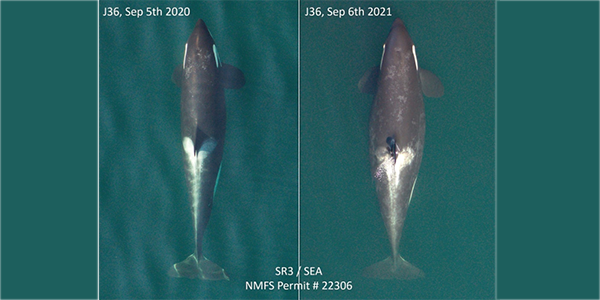||| FROM WASHINGTON POST |||
“Killer whales reproduce very slowly, so it’s hard to recover the population,” said John Durban, who made the discovery with his wife and research partner, Holly Fearnbach. “Deaths are outpacing births.”
All three pregnancies appear to be in their late stages, they said.
“Their shape change was really prominent, so it was fairly obvious,” said Durban, 45, a senior scientist at Southhall Environmental Associates Inc. “When they’re pregnant, they get a bulge below the rib cage, just like people.”
The pregnancies are notable because the total southern resident killer whale population is at its lowest point since the 1970s. Just 44 orcas have been born since 1998, and within the same time frame, 81 have died or disappeared. One captured the world’s attention in 2018 when she gave birth, then carried her dead calf for 17 days and more than 1,000 miles.
When Durban and Fearnbach made the discovery on Sept. 6, they were in the middle of the Salish Sea — between Washington state, where they live, and British Columbia — on a 24-foot-long bright orange research boat. Southern resident killer whales, one of several orca populations that live along the West Coast of the United States and Canada and the only one that is designated as endangered under the Endangered Species Act, spend much of their time in those waters.
For the past 14 years, Durban and Fearnbach have been using aerial drone technology to closely monitor the southern resident killer whale population. Although they collect data as a duo year-round, they photograph the orcas each September, which is when the marine mammals spend the most time foraging for salmon in the area.
On average, orcas have a 17-month gestation period, though there is no clear timeline for how far along the three presumably pregnant whales are.
READ FULL ARTICLE: www.washingtonpost.com/lifestyle/2021/09/23/orca-pregnant-endangered-species/
**If you are reading theOrcasonian for free, thank your fellow islanders. If you would like to support theOrcasonian CLICK HERE to set your modestly-priced, voluntary subscription. Otherwise, no worries; we’re happy to share with you.**








